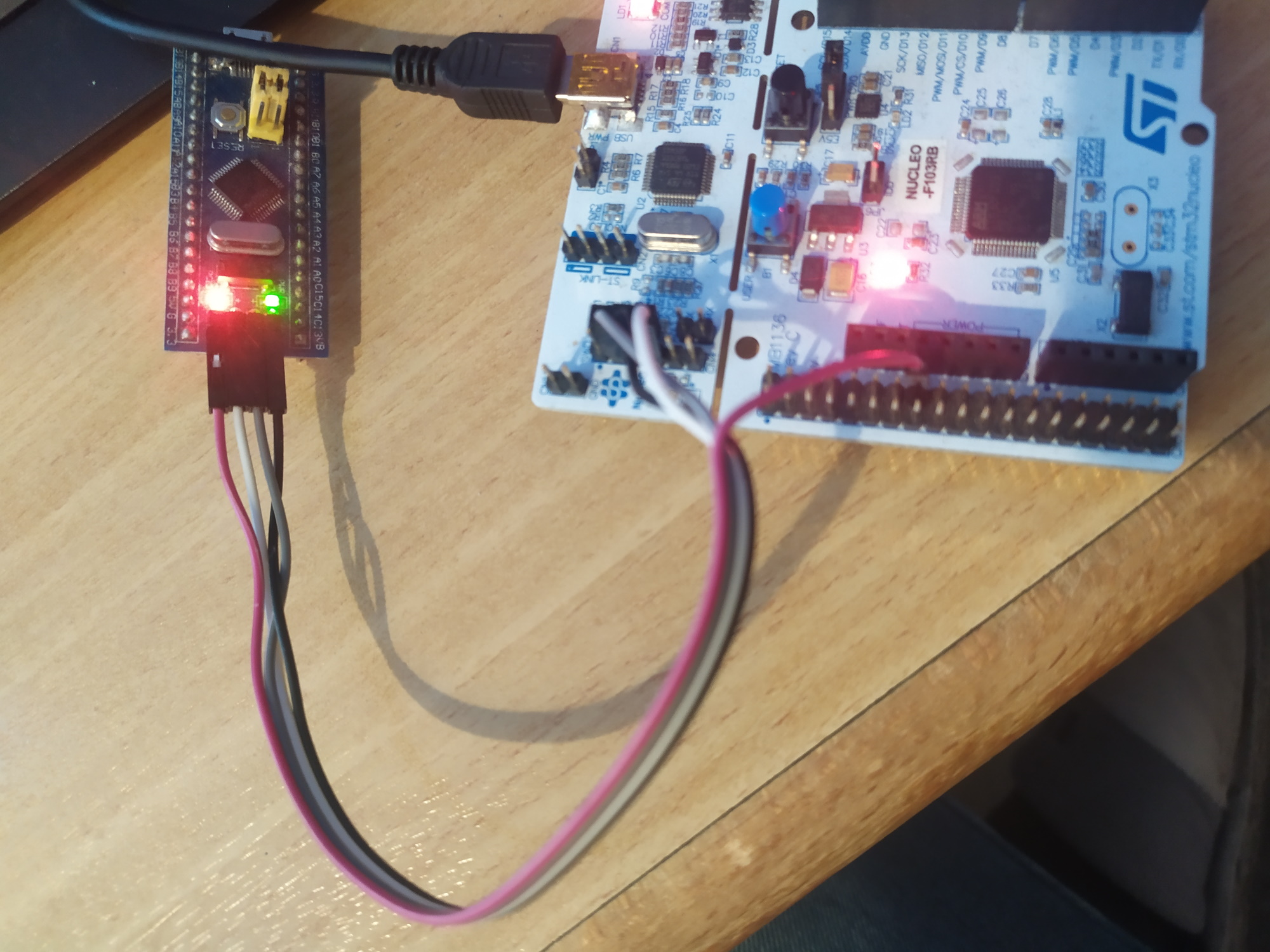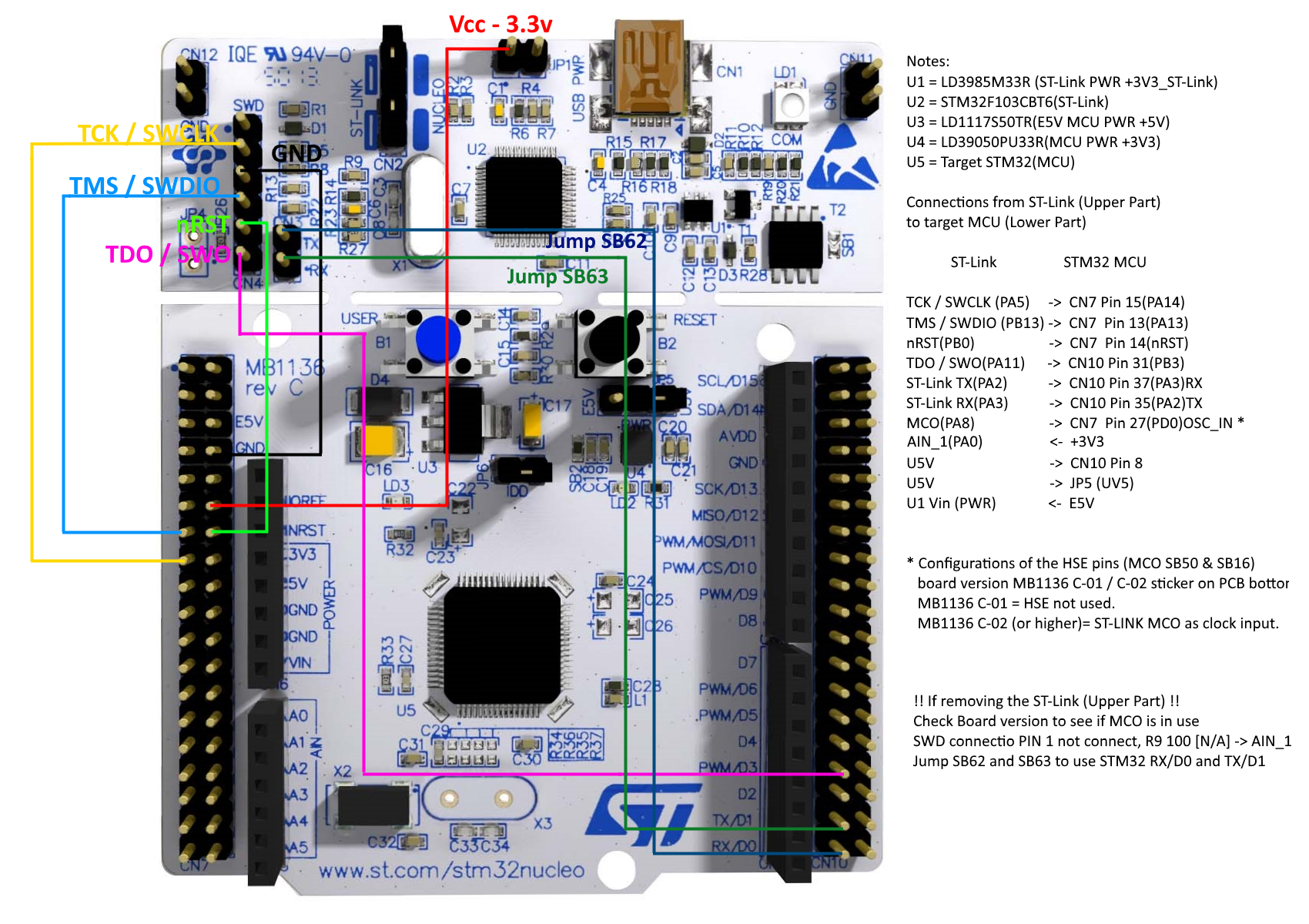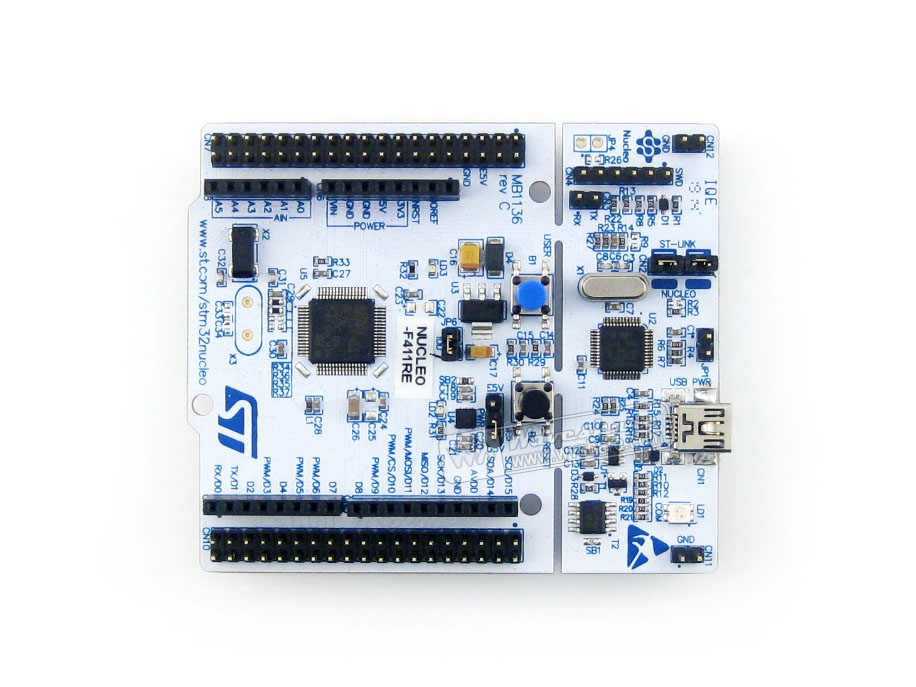

Four USARTs with master/slave synchronous SPI two supporting ISO7816 interface, LIN, IrDA capability, auto baud rate detection and wakeup feature.
St nucleo board plus#
Two I2C-bus interfaces supporting Fast-mode Plus (1 Mbit/s) with extra current sink, one supporting SMBus/PMBus and wakeup from Stop mode.Calendar RTC with alarm and periodic wakeup from Stop/Standby/Shutdown.

 14 timers (two 128 MHz capable): 16-bit for advanced motor control, one 32-bit and five 16-bit general-purpose, two basic 16-bit, two low-power 16-bit, two watchdogs, SysTick timer. Two fast low-power analog comparators, with programmable input and output, rail-to-rail. Two 12-bit DACs, low-power sample-and-hold. Up to 16-bit with hardware oversampling. 7-channel DMA controller with flexible mapping. All mappable on external interrupt vectors. Internal 16 MHz RC with PLL option (☑ %). 32 kHz crystal oscillator with calibration. VBAT supply for RTC and backup registers. Low-power modes:Sleep, Stop, Standby, Shutdown. 36 Kbytes of SRAM (32 Kbytes with HW parity check). -40☌ to 85☌/125☌ operating temperature. Core: Arm® 32-bit Cortex®-M0+ CPU, frequency up to 64 MHz. It is available only with Mbed-CLI and on GitHub repository. This board is not yet fully Mbed enabled, so not available with online compiler. The STM32 Nucleo-64 board does not require any separate probe as it integrates the ST-LINK debugger/programmer. The Arduino™ Uno V3 connectivity support and the ST morpho headers allow the easy expansion of the functionality of the STM32 Nucleo open development platform with a wide choice of specialized shields. The STM32 Nucleo-64 boards provide an affordable and flexible way for users to try out new concepts and build prototypes by choosing from the various combinations of performance and power consumption features, provided by the STM32 microcontroller.
14 timers (two 128 MHz capable): 16-bit for advanced motor control, one 32-bit and five 16-bit general-purpose, two basic 16-bit, two low-power 16-bit, two watchdogs, SysTick timer. Two fast low-power analog comparators, with programmable input and output, rail-to-rail. Two 12-bit DACs, low-power sample-and-hold. Up to 16-bit with hardware oversampling. 7-channel DMA controller with flexible mapping. All mappable on external interrupt vectors. Internal 16 MHz RC with PLL option (☑ %). 32 kHz crystal oscillator with calibration. VBAT supply for RTC and backup registers. Low-power modes:Sleep, Stop, Standby, Shutdown. 36 Kbytes of SRAM (32 Kbytes with HW parity check). -40☌ to 85☌/125☌ operating temperature. Core: Arm® 32-bit Cortex®-M0+ CPU, frequency up to 64 MHz. It is available only with Mbed-CLI and on GitHub repository. This board is not yet fully Mbed enabled, so not available with online compiler. The STM32 Nucleo-64 board does not require any separate probe as it integrates the ST-LINK debugger/programmer. The Arduino™ Uno V3 connectivity support and the ST morpho headers allow the easy expansion of the functionality of the STM32 Nucleo open development platform with a wide choice of specialized shields. The STM32 Nucleo-64 boards provide an affordable and flexible way for users to try out new concepts and build prototypes by choosing from the various combinations of performance and power consumption features, provided by the STM32 microcontroller.







 0 kommentar(er)
0 kommentar(er)
